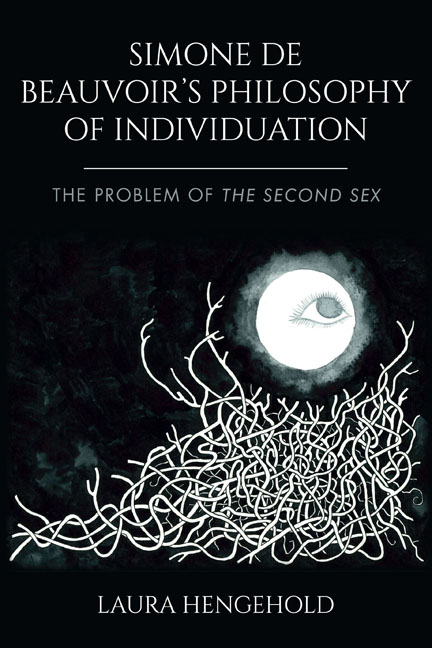2 - The Problem of Sexist Sense
Published online by Cambridge University Press: 23 June 2018
Summary
‘To what are we dedicated if not to those problems which demand the very transformation of our body and our language?’
(DR 192/248)In What is a Woman?, Toril Moi interprets The Second Sex, particularly its Introduction, as sharing assumptions about the relationship between philosophy, voice and the everyday with ordinary language philosophers. ‘What is a woman?’ in other words, what does this word really refer to, and why does it seem to bring so much more baggage with it than simple reference to a human being with female anatomy? Moi hoped to show that Simone de Beauvoir was arguing against a very specific notion of femininity as somehow ‘pervasive’ in every aspect of such a human being's life, such that nothing women did could remain untouched by sexual or reproductive concerns. She also wanted to show how Beauvoir's style negotiated the pitfalls of her implication in ‘false’ philosophical problems such as the supposed partiality obstructing her legitimacy as a philosopher. In doing so, finally, Moi wished to detach Beauvoir from contemporary claims about the ‘social construction’ of gender, no less than from ‘essentialism’, and indeed from any notion of a distinction between sex and gender.
Both Moi and Nancy Bauer contend that the term ‘woman’ can be useful to feminists without entailing metaphysical commitments. Indeed, Bauer believes that The Second Sex and other feminist writings provide evidence for why philosophy ought to reconceive itself apart from metaphysics.
Without wishing to deny the validity of many of Moi's points, and in keeping with her interest in the way a philosophical oeuvre balances personal and impersonal elements, I want to read the same text as an account of the formation of a problem and its associated concepts. The Second Sex is a work of critique in Deleuze's sense – a work that not only delimits and detaches from its object in thought, but also explains how that object came to be. In this sense, it is the critique of a certain metaphysics, even if it obviously does not evade metaphysics altogether.
- Type
- Chapter
- Information
- Simone de Beauvoir's Philosophy of IndividuationThe Problem of The Second Sex, pp. 25 - 57Publisher: Edinburgh University PressPrint publication year: 2017



